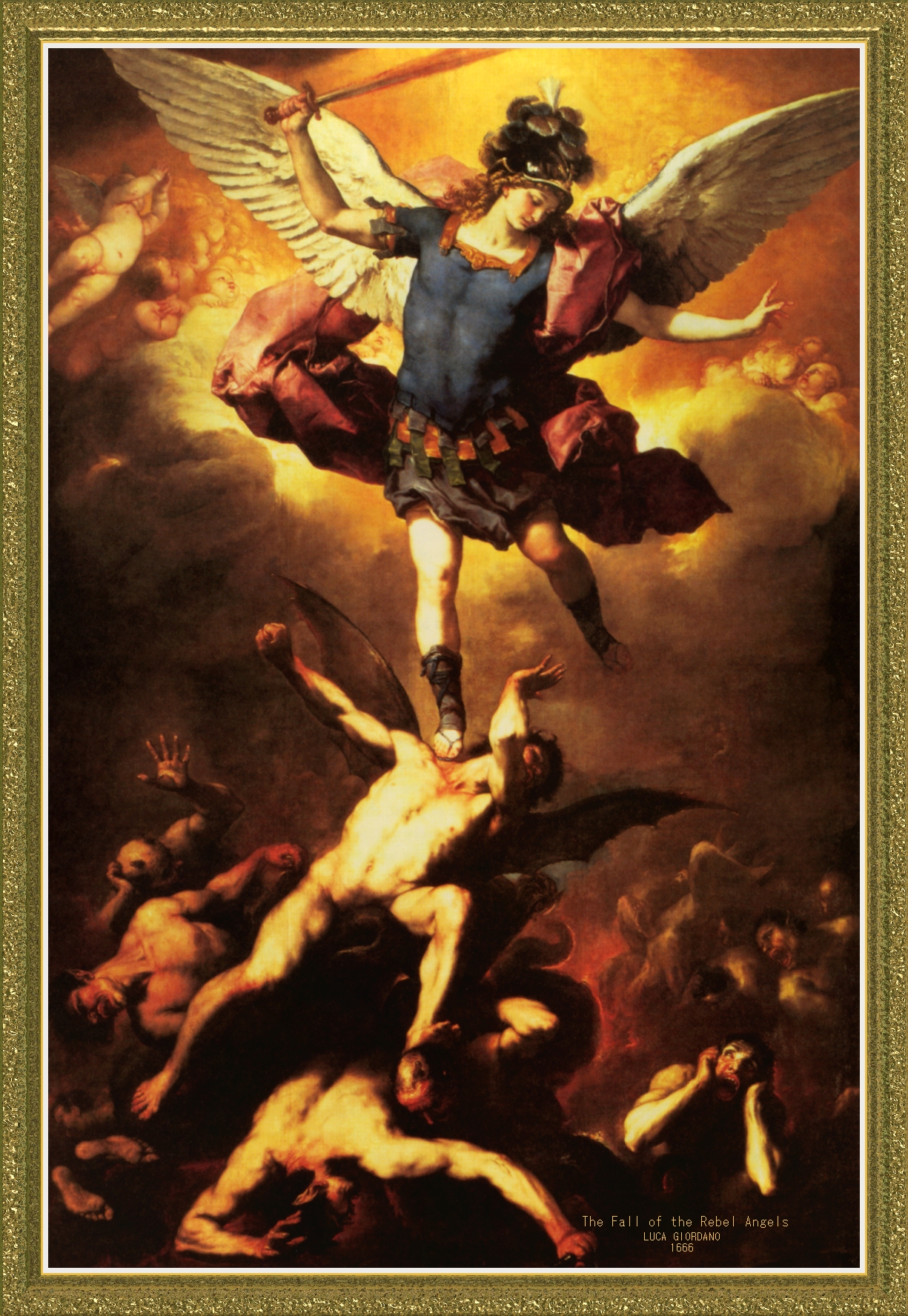

|
The Banishment of the Angels AS THE moderns edit it, the first dreadful chapter in human history has been recast, the roles changed so that the victim is now victimizer. Originally the Angels stood at the gates of Paradise, inexorable, their swords flaming, as the first man and woman trudged out of the Garden disconsolate to begin their long, lonely exile. Today it is the Angel who is banished and man who stands, inexorable, his words a flaming sword, guarding the barriers of the world. Of course, an Angel is a difficult person to get at, even with a flaming sword; but the moderns have done the best they could. If it were possible to imagine a bedraggled Angel, the victim of the modern decree would be a sorry sight; for here there is no promise of a redemption or a Redeemer. Indeed, if the Angels had to take this stern exile seriously, their lot would be much more serious than was that of Adam and Eve: the first man and woman were forbidden a corner of the earth and made to climb the hill to Heaven; the Angels, if the moderns had their way, would have no corner of the earth left to them, nor any place in Heaven or in Hell. They would be ruled out of existence. By the ancestors of modern philosophy In the modern picture there is little room for an Angel, however economic an Angel might be with space. Certainly the immediate ancestors of our modern philosophers left little ground for Angels to walk on, none to call their own. The materialism of the nineteenth century made a closed shop of the world, its machines purring along smoothly in a mechanical pride at their monopoly of the past, present and definitely predictable future. Machines and Angels have little in common; and this was a completely mechanical world. No account could be taken by it of the angels for, by its own confession, it could handle only the material; the rest was ruled out of existence. By the moderns The naturalism, which supported this machine-like world, identified the known with the seen, the observed; only that which could be weighed, measured, dissected was real. An Angel was much too slippery to be real. Rationalism, at least in its earliest beginnings, admitted human reason and its immaterial character into the world of reality; but then it slammed shut the gates. There were no seats left, certainly none for a being that claimed superiority over that human spirit, Rationalism expected to destroy the Angels by snubbing them; instead, it has come perilously close to destroying the human reason it professed to champion. Its reasons The modern attitude is a jumble of all three of these views of reality. Some men, pushing naturalism to its logical extreme, deify science and so, of course, brush the Angels aside impatiently. What can a scalpel, an atom smasher or a list of cleverly arranged words do with an Angel? There cannot be Angels. A logical consequence of this is the denial of reason itself; reason, you see, has not as yet been strapped to an operating table. Their flag proclaimed them to be mechanistic and psycho-analytical psychologists but they were, none the less, pirates preying on humanity who made even that feeble offspring of spirituality which rationalism spared walk the plank. The step was not far from the insistence on the absolute supremacy of reason to its complete extinction. Today, many legions of men insist on the complete independence and supremacy of man, refusing to have anything to do with a creature, or even a God, superior to man. Modernity again bites off its nose to spite its face; the trick is so ingenious that we have not yet tired of it. To spite reason and extol the scientific method, reason is ruled out and so science is killed; to spite authority and rule mystery out of the universe, reason is elevated to the highest rung of the ladder and nothing is left for the ladder to stand on. The moderns have made the defense of man by putting him at the crown of existence, a kind of three ring circus with no publicity barred; but when the noise dies down and the crowds file out, the hero of the whole performance is crawling about on all fours. Obviously Angels have no place in such thinking as this; neither, for that matter, have men. Its effects This modern contempt for things Angelic has, as a matter of fact, had its effect on those who have no slightest doubt about the Angelic world. Not that it has shaken their belief in any way; it has rather made them self-conscious about Angels. They would hesitate to drag an Angel out in public. Belief in Angels is made to seem just a little childish, like believing in hobgoblins or Santa Claus; it is as though Angels belonged in the world of make-believe that may be dissolved at any moment by the call to dinner. There is just the faintest odor of suspicion that by such belief we are not being entirely true to our reason, we are a little too credulous for manhood, a little too hopeful for an adult. |
HOME--------------------------------------GALLERIES

